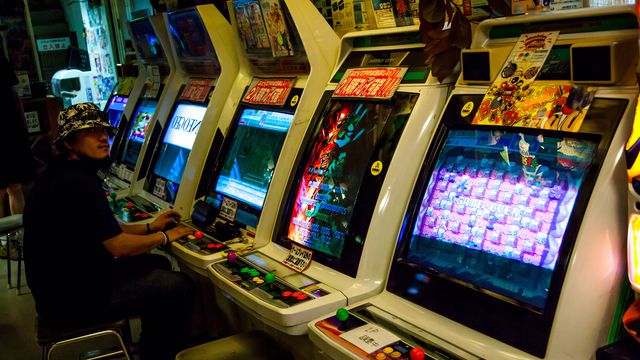A new government tax that was set in place on October 1 could lead to the death of the Japanese arcade industry.
The Japan Times reports that consumption tax in Japan increased from eight per cent to ten per cent this week. They said:
To limit the influence of the higher rate on households, however, the government will keep the tax rate at 8 percent on food, beverages and newspapers, resulting in Japan’s first tax breaks under the consumption tax system. The lower rate will not be applied to alcoholic drinks or food served in restaurants.
Kotaku reports that the lower rate won’t be applied to arcade games, either.
Although this may not seem like a big deal at face value, it knocks the entire framework of the Japanese arcade industry’s marketing off its axis. Arcade machines have always had their prices set in correspondence with single-coin values—specifically, the 100 yen coin. Therefore, arcade games usually cost the same price, regardless of tax.
In an interview with Stripes Japan, managing director of Nippon Amusement Machine Operator’s Union Keiichi Kouno said:
The basic charge for playing a game is only 100 yen; anyone in any age bracket can enjoy arcade games easily and casually. We have kept this ‘one-coin’ policy for 30 years.
This means that many arcade owners already absorb the lower rate of tax in the cost price of the games they offer, meaning that the 8% tax is included in the 100 yen cost. This is to ensure that players can still play games by using a single-coin, instead of paying 108 yen. With this new increase, arcade prices would hypothetically increase to 110 yen, meaning that arcade owners will need to absorb even more of the tax themselves. The subsequent loss of profits will be hugely detrimental to the industry, which was already struggling to overcome the hurdles set by consumption tax.
In a different article to the one linked above, Kotaku reported that there were over 44,000 arcades in the mid-80s. Stripes Japan reports that as of 2014 “there (were) 5,772 licensed arcades in Japan, according to data from the National Police Department.”
A 2 yen increase per play may seem negligible, but it’s enough to knock over an industry already on its last legs.







